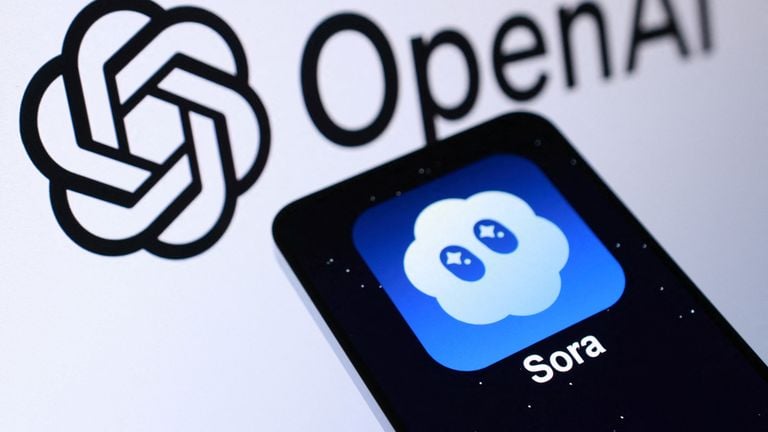The world of artificial intelligence just got a little more dramatic. Cameo, the company that lets fans buy personalized video messages from celebrities, has taken legal action against OpenAI. The reason is simple. Cameo says OpenAI copied its name for one of its new video tools called Cameos, which is part of its Sora video generator.
Cameo believes this new AI feature will confuse people and hurt its brand. It also says OpenAI ignored warnings to stop using the name before it was too late. Now, both companies are heading to court in what could be one of the biggest tech trademark battles of the year.
What Is the Problem Between Cameo and OpenAI?
Cameo says that OpenAI used the name Cameo for a feature inside its new Sora video generator. The Sora app allows users to create realistic videos using artificial intelligence. One of its latest tools, called Cameos, lets people insert themselves or others into AI-made videos alongside celebrities or famous historical figures.
You could make a video with someone like Muhammad Ali, Abraham Lincoln, or even OpenAI’s own CEO Sam Altman. Some users say this feature looks fun, but Cameo says it crosses a serious line.
Cameo’s CEO Steven Galanis said the company tried to talk with OpenAI to solve the issue peacefully. However, according to him, OpenAI refused to stop using the name Cameo. As a result, Cameo decided to file a lawsuit to protect its name, its brand, and its users.
What the Lawsuit Is About
Cameo’s lawsuit claims trademark infringement, trademark dilution, and unfair competition under both federal and state laws. The company argues that OpenAI’s use of the word Cameo could confuse customers into thinking the two companies are connected or that Cameo has approved of OpenAI’s features.
The company’s statement said the use of the name might “mislead the public into believing that the products or services are associated with or endorsed by Cameo.”
Cameo also believes OpenAI’s decision damages its brand reputation. Its app is built on real celebrities making real videos for fans, while OpenAI’s feature creates AI-generated versions of people, which might not be real or accurate.
In short, Cameo says the Sora Cameos tool copies the spirit of its platform and uses the same name in a way that can mislead people.
OpenAI’s Response
OpenAI has responded to the lawsuit and said it disagrees with Cameo’s claims. A spokesperson for the company said, “We disagree that anyone can claim exclusive ownership over the word ‘cameo.’”
OpenAI says it will review the complaint but believes the name is too common to be owned by a single company. The company seems confident that it has not broken any trademark rules and that users will not confuse the two products.
Still, this disagreement highlights a growing problem in the AI industry. As AI companies move fast to build new tools, they often face legal questions about ownership, originality, and brand use.
Why This Matters for the AI Industry
This lawsuit is not just about a single word. It raises bigger questions about how technology companies should handle branding and creative rights. AI companies like OpenAI are now creating tools that can generate lifelike videos, images, and voices. But as these tools become more advanced, they also risk copying or clashing with real businesses, artists, and even people’s identities.
Cameo’s main concern is that people might mistake AI-generated celebrity clips for real videos made by celebrities on its platform. This could make users lose trust in Cameo or confuse them about which service is real.
It also shows how fast AI is changing entertainment. What used to require real celebrity time and effort can now be done with a few clicks using AI. That shift could challenge the value of real celebrity interactions in the future.
A Clash Between Creativity and Technology
At its heart, this case is a clash between creativity and technology. Cameo built its brand by connecting fans with real people. OpenAI, on the other hand, builds technology that can create virtual versions of almost anything.
The two ideas sound similar on the surface but come from different worlds. Cameo’s videos rely on human emotion and personal connection, while OpenAI’s Sora feature focuses on digital creation and automation. The fight shows how difficult it can be to balance these two worlds when they start to overlap.
What Happens Next
The lawsuit is still in its early stages, and it may take months or even years before a final decision is made. Cameo is asking the court to make OpenAI stop using the Cameo name and to pay damages for any harm done to its brand.
If Cameo wins, it could set an example for other companies that want to protect their names and brands from being used in the fast-moving AI space. But if OpenAI wins, it could give tech companies more freedom to use common words in their products.
The Bottom Line
Whether you side with Cameo or OpenAI, one thing is clear. This case shows that as AI tools like Sora become more powerful, legal battles like this will become more common. Companies will need to think carefully before naming their products or using real people’s images in digital creations.
Cameo’s lawsuit is a warning that even in a world of virtual videos and AI-generated faces, real-world laws still apply.
Also Read:OpenAI Requested Memorial Attendee List in ChatGPT Suicide Lawsuit

